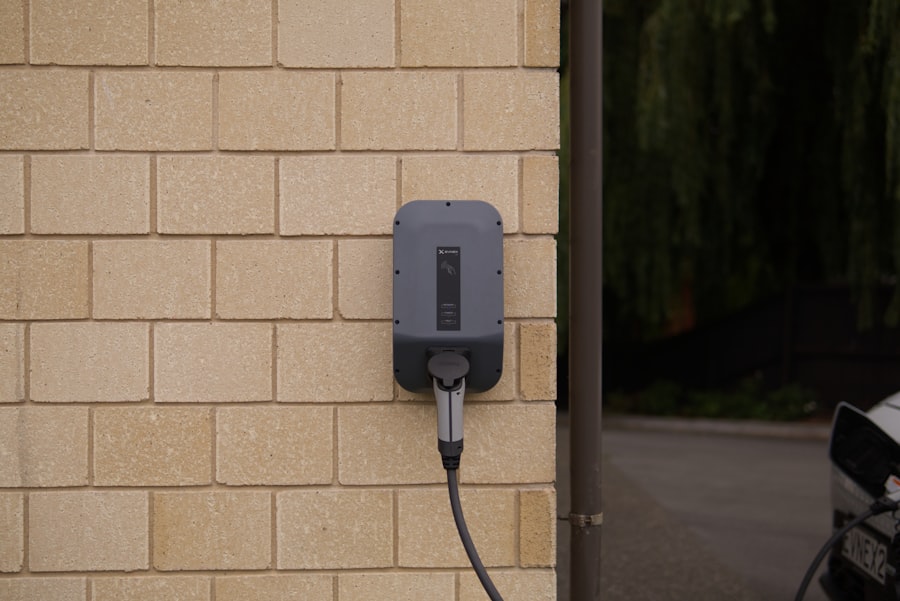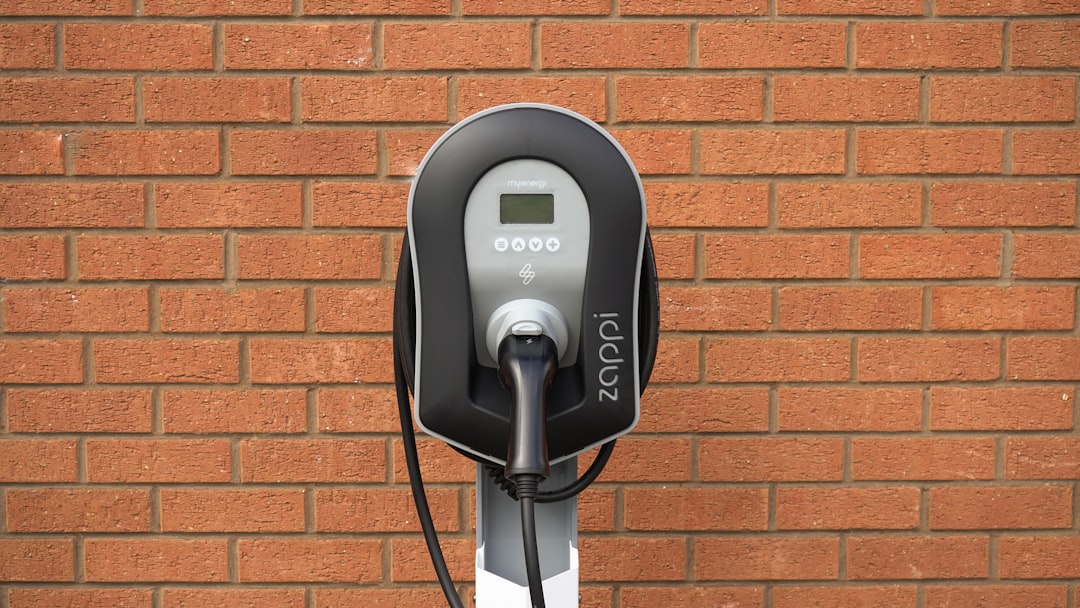As you navigate the roads of modern transportation, you may have noticed a significant shift towards electric vehicles (EVs). This transition is not merely a trend; it represents a fundamental change in how we think about mobility and energy consumption. The growing awareness of climate change and the urgent need to reduce greenhouse gas emissions have propelled EVs into the spotlight.
With advancements in battery technology and a broader acceptance of electric mobility, you are witnessing a transformation that promises to reshape the automotive landscape.
As you consider the long-term implications of owning an EV, you might find that lower operating costs, reduced maintenance, and government incentives make them an attractive option.
The shift to electric vehicles is not just about personal choice; it reflects a collective movement towards a more sustainable future. As more individuals and businesses embrace this change, the demand for EVs continues to rise, signaling a pivotal moment in the evolution of transportation.
Key Takeaways
- The shift to electric vehicles is driving the need for sustainable infrastructure and smart charging technology.
- Government policies play a crucial role in the development of EV charging infrastructure and the integration of renewable energy sources.
- The impact on the energy grid must be carefully managed to accommodate the growing demand for EV charging.
- Private sector investment is essential for the expansion and standardization of EV charging networks.
- Addressing equity and accessibility in EV charging is important for ensuring that all communities can benefit from the transition to electric vehicles.
The Importance of Sustainable Infrastructure
As you contemplate the future of electric vehicles, it becomes clear that sustainable infrastructure is crucial for their widespread adoption. Charging stations are the lifeblood of the EV ecosystem, providing the necessary support for drivers like you to recharge your vehicles conveniently. The development of a robust charging network is essential to alleviate range anxiety and ensure that you can travel long distances without fear of running out of power.
This infrastructure must be strategically placed in urban areas, along highways, and in rural communities to create a seamless experience for all EV users. Moreover, sustainable infrastructure goes beyond just charging stations. It encompasses the entire ecosystem that supports electric mobility, including renewable energy sources, smart grid technology, and efficient urban planning.
As you engage with this evolving landscape, you may find that cities are increasingly prioritizing green spaces, pedestrian-friendly designs, and integrated public transport systems. This holistic approach not only enhances your experience as an EV driver but also contributes to a healthier environment for everyone.
The Role of Government and Policy in EV Charging

Government policies play a pivotal role in shaping the future of electric vehicle charging infrastructure. As you observe the landscape of EV adoption, you may notice that various governments are implementing incentives to encourage both consumers and businesses to invest in electric mobility. Tax credits, rebates, and grants are just a few examples of how policymakers are making it easier for you to transition to an electric vehicle.
These initiatives not only lower the financial barrier but also signal a commitment to sustainability at the national and local levels.
As you navigate this evolving landscape, you may find that policies promoting the installation of charging stations in new developments or mandating a certain percentage of EVs in government fleets are becoming more common.
These measures not only facilitate your access to charging but also encourage private sector investment in EV infrastructure, creating a more comprehensive network that benefits all users.
The Impact on the Energy Grid
| Metrics | Impact on Energy Grid |
|---|---|
| Peak Demand | Increased demand during peak hours can strain the energy grid and lead to potential blackouts. |
| Renewable Energy Integration | The integration of renewable energy sources can reduce reliance on traditional energy sources and decrease strain on the grid. |
| Grid Resilience | Extreme weather events and cyber attacks can impact the resilience of the energy grid, leading to disruptions in power supply. |
| Energy Storage | Effective energy storage solutions can help balance supply and demand, reducing strain on the grid during peak times. |
As electric vehicles become more prevalent on the roads, their impact on the energy grid cannot be overlooked. You might wonder how an increase in EVs will affect electricity demand and supply dynamics. The reality is that while EVs can place additional strain on the grid during peak hours, they also present opportunities for innovation and efficiency.
By understanding how your charging habits align with grid demand, you can contribute to a more balanced energy ecosystem. Smart charging solutions are emerging as a way to mitigate potential challenges associated with increased electricity demand from EVs. As you engage with these technologies, you may find that they allow for charging during off-peak hours when electricity is cheaper and more abundant.
This not only helps stabilize the grid but also reduces your overall charging costs. By embracing smart charging practices, you can play an active role in optimizing energy consumption while supporting the transition to a more sustainable energy future.
The Rise of Smart Charging Technology
In your journey towards adopting electric vehicles, you may have encountered the concept of smart charging technology. This innovative approach allows for more efficient and flexible charging solutions tailored to your needs as an EV driver. Smart chargers can communicate with the grid and adjust charging rates based on real-time electricity prices or grid demand.
This means that you can charge your vehicle when energy is most affordable or when renewable sources are abundant. Moreover, smart charging technology can enhance your overall driving experience by providing insights into your vehicle’s battery status and charging patterns. As you explore these advancements, you may discover features such as scheduled charging or remote monitoring through mobile apps.
These tools empower you to make informed decisions about when and how to charge your vehicle, ultimately leading to cost savings and a reduced environmental footprint.
The Integration of Renewable Energy Sources

As you consider the future of electric vehicles, it’s essential to recognize the role of renewable energy sources in powering this transition. The integration of solar, wind, and other clean energy technologies into the charging infrastructure is vital for maximizing the environmental benefits of EVs. When you charge your vehicle using renewable energy, you significantly reduce its carbon footprint and contribute to a cleaner energy landscape.
Many forward-thinking cities and businesses are already investing in solar-powered charging stations or wind farms dedicated to supplying electricity for EVs. As you engage with these initiatives, you may find that they not only enhance your driving experience but also promote community resilience and sustainability. By supporting renewable energy integration into the EV ecosystem, you become part of a larger movement towards a greener future.
The Need for Standardization and Interoperability
As electric vehicles gain traction, the need for standardization and interoperability in charging infrastructure becomes increasingly apparent. You may have noticed that different EV models come with varying charging connectors and protocols, which can create confusion and inconvenience when searching for charging stations. Standardization is essential for ensuring that all EV drivers can access charging facilities without compatibility issues.
Efforts are underway to establish universal standards that facilitate seamless interactions between different vehicles and charging stations. As you navigate this evolving landscape, you may find that initiatives aimed at creating interoperable systems will enhance your experience as an EV driver. By advocating for standardization, you contribute to a more user-friendly environment that encourages widespread adoption of electric vehicles.
The Role of Private Sector Investment
The private sector plays a crucial role in advancing electric vehicle infrastructure and technology. As you observe the landscape of EV adoption, you’ll likely notice that companies are investing heavily in developing charging networks and innovative solutions to meet growing demand. This investment not only accelerates the deployment of charging stations but also fosters competition that drives down costs for consumers like you.
Moreover, private sector involvement often leads to partnerships with governments and non-profit organizations aimed at expanding access to EV infrastructure. As you engage with these initiatives, you may find that businesses are increasingly committed to sustainability and corporate social responsibility. By supporting companies that prioritize electric mobility, you contribute to a more sustainable future while enjoying the benefits of cutting-edge technology.
Addressing Equity and Accessibility in EV Charging
As electric vehicles become more mainstream, it is essential to address issues of equity and accessibility in charging infrastructure. You may be aware that not all communities have equal access to charging stations, which can create disparities in who can benefit from electric mobility. Ensuring that all individuals have access to reliable charging options is crucial for promoting inclusivity in the transition to electric vehicles.
Efforts are being made to expand charging networks into underserved areas and provide incentives for businesses to install chargers in diverse communities. As you engage with these initiatives, consider how your choices as an EV driver can support equitable access to charging infrastructure. By advocating for policies that prioritize inclusivity, you contribute to a more just transition towards sustainable transportation.
The Potential for Wireless Charging Technology
As technology continues to evolve, wireless charging presents an exciting frontier for electric vehicles. Imagine being able to charge your vehicle simply by parking over a designated area without needing to plug in a cable. This convenience could revolutionize how you think about recharging your EV while eliminating some common barriers associated with traditional charging methods.
Wireless charging technology relies on electromagnetic fields to transfer energy between a charging pad on the ground and a receiver installed in your vehicle. As this technology matures, it has the potential to be integrated into public parking spaces or even roadways themselves. As you consider the possibilities of wireless charging, envision how it could enhance your daily routine by making recharging as effortless as parking your car.
The Future of EV Charging: Environmental and Economic Benefits
Looking ahead, the future of electric vehicle charging holds immense promise for both environmental sustainability and economic growth. As more individuals like yourself embrace electric mobility, the cumulative impact on reducing greenhouse gas emissions will be significant. By choosing an electric vehicle and utilizing sustainable charging options, you’re contributing to cleaner air and a healthier planet for future generations.
Economically, the growth of the EV market presents opportunities for job creation and innovation across various sectors. From manufacturing batteries to developing advanced charging technologies, the transition to electric vehicles is poised to drive economic growth while addressing pressing environmental challenges. As you engage with this evolving landscape, remember that your choices as an EV driver play a vital role in shaping a sustainable future—one where both people and the planet can thrive together.
As the demand for electric vehicles (EVs) continues to rise, the future of EV charging infrastructure is becoming increasingly critical. A related article that explores the implications of this shift can be found at How Wealth Grows, where it discusses the necessary advancements and investments needed to support a growing fleet of electric vehicles. This article provides valuable insights into the challenges and opportunities that lie ahead in the development of a robust charging network.
WATCH THIS! The $7.5 BILLION Lie: Why EV Chargers Are Always Broken
FAQs
What is the future of EV charging infrastructure?
The future of EV charging infrastructure involves the expansion and improvement of charging networks to support the growing number of electric vehicles on the road.
What are the key developments in EV charging infrastructure?
Key developments in EV charging infrastructure include the deployment of fast-charging stations, the integration of renewable energy sources, the development of smart charging technologies, and the expansion of charging networks in urban and rural areas.
How will EV charging infrastructure evolve to meet the needs of electric vehicle owners?
EV charging infrastructure will evolve to meet the needs of electric vehicle owners by offering faster charging speeds, increasing the number of charging stations, providing convenient access to charging facilities, and integrating with smart grid technologies.
What are the challenges facing the future of EV charging infrastructure?
Challenges facing the future of EV charging infrastructure include the need for standardization of charging protocols, the integration of charging infrastructure with urban planning, the management of peak electricity demand, and the development of cost-effective charging solutions.
What role will government policies and regulations play in shaping the future of EV charging infrastructure?
Government policies and regulations will play a crucial role in shaping the future of EV charging infrastructure by providing incentives for the deployment of charging stations, setting standards for charging infrastructure, and promoting the adoption of electric vehicles through supportive policies.
